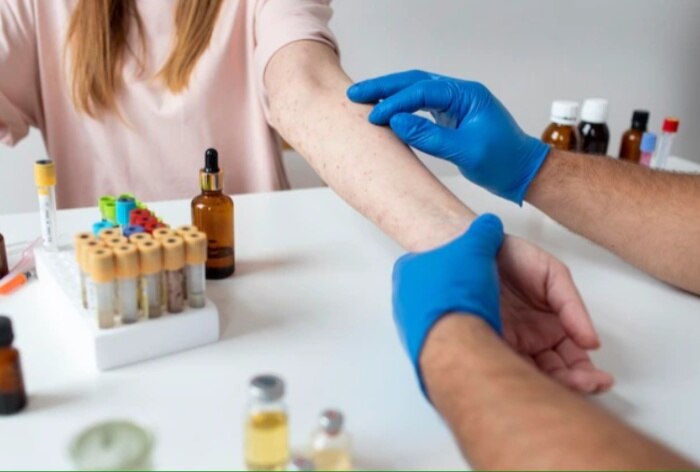As there has been a sudden rise in the cases of dengue, It is important to detect the virus without any delay. Expert reveals when the right time is to get tested and be cautious of this severe infection.

Dengue fever is a viral infection that has become a major health concern in recent years. Transmitted by mosquitoes, this infectious disease affects millions of people. Dengue is a viral infection that tends to spread from mosquitoes to people. The signs and symptoms of dengue can be quite alarming. One of the most common manifestations is a high fever, typically lasting for about a week. However, what sets dengue apart from other viral infections is the excruciating joint and muscle pain it inflicts on its victims. This pain is often so severe that it is given the nickname breakbone fever. Additionally, many may experience severe headache, especially behind the eyes, as well as a rash that spreads across their body. Another sign to watch out for is unexplained bleeding or easy bruising. Dengue can cause platelet levels to drop dramatically, leading to bleeding issues such as nosebleeds or gum bleeding. Some may even report blood in their urine or stools.
Causes And Symptoms of Dengue
While these symptoms may be easy to dismiss initially, they should not be ignored because they could indicate serious complications associated with dengue hemorrhagic fever that is a potentially life-threatening condition. It’s important to note that not everyone infected with the dengue virus will experience all these symptoms; some patients may only have mild flu-like symptoms while others progress into more serious illness. Remember that early detection and treatment significantly increase your chances of recovery from this mosquito-borne disease.
When is The Right Time to Get Tested For Dengue Fever?
According to Dr Harish Chafle, Consultant Intensivist, and Chest Physician, Global Hospital, Parel, Mumbai, “The most commonly used test is the NS1 antigen test, which can detect the presence of dengue virus within a period of 1-9 days after the onset of symptoms. This test works by detecting a protein called NS1 that is produced by the virus. Another common test for dengue is the IgM antibody test, which detects antibodies produced by the immune system in response to a recent infection. This test is usually performed 5-7 days after the onset of symptoms and can provide valuable information about whether a person has had previous exposure to dengue. In recent years, there have been advancements in molecular tests for dengue, such as PCR (polymerase chain reaction) tests. These tests can detect small amounts of viral genetic material and are highly sensitive and specific. Even blood tests and platelet count should be monitored carefully and regularly. So, a complete blood count (CBC) test will be beneficial for the patient.”
Knowing the right time to take a dengue test can make a significant difference in managing the disease effectively. Getting tested immediately after exposure may not give accurate results. Therefore, it is advisable to wait at least five days from the onset of symptoms before going for a dengue test. Consequently, taking a test too late may result in false negatives or inconclusive results since there might not be enough virus or antibodies present in the blood sample anymore.
